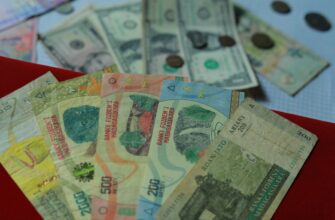- What is an Ethereum ERC20 Wallet?
- Why You Need a Dedicated ERC20 Wallet
- Top 5 ERC20 Wallets for 2023
- How to Set Up Your ERC20 Wallet in 4 Steps
- Critical Security Practices for ERC20 Wallets
- Frequently Asked Questions
- Can I store ERC20 tokens in any Ethereum wallet?
- What happens if I send ERC20 tokens to a wrong address?
- Are ERC20 wallets free to use?
- How do I recover a lost ERC20 wallet?
- Can I stake ERC20 tokens from my wallet?
What is an Ethereum ERC20 Wallet?
An Ethereum ERC20 wallet is a specialized digital wallet designed to store, send, and receive tokens built on Ethereum’s ERC20 standard. Unlike standard ETH wallets, ERC20 wallets support the technical requirements of these token contracts, enabling seamless interaction with thousands of cryptocurrencies like USDT, SHIB, and UNI. These wallets manage both your Ether (ETH) for transaction fees and your ERC20 tokens in one secure interface.
Why You Need a Dedicated ERC20 Wallet
- Token Compatibility: Native support for all ERC20 tokens without technical hiccups.
- Enhanced Security: Dedicated encryption and backup protocols for token assets.
- Simplified Management: View all ERC20 holdings in one dashboard with real-time balances.
- DeFi Integration: Direct access to decentralized exchanges (DEXs) like Uniswap and lending platforms.
- Transaction Control: Adjust gas fees and customize token approvals for optimal efficiency.
Top 5 ERC20 Wallets for 2023
- MetaMask: Browser extension and mobile app with 30M+ users. Ideal for DeFi with built-in swap functionality.
- Trust Wallet: Binance-owned mobile wallet supporting 4.5M+ assets. Features staking and NFT display.
- Ledger Nano X: Hardware wallet offering offline cold storage. Supports 1,800+ ERC20 tokens via Ledger Live app.
- Coinbase Wallet: Non-custodial spin-off from Coinbase exchange. Includes Web3 browser for dApp access.
- MyEtherWallet (MEW): Web-based open-source solution. Allows direct contract interactions for advanced users.
How to Set Up Your ERC20 Wallet in 4 Steps
- Download & Install: Choose a wallet provider and install their app or browser extension.
- Create Wallet: Generate a new wallet address and record your 12-24 word recovery phrase offline.
- Add ERC20 Tokens: Use the ‘Add Token’ feature and enter the contract address (found on Etherscan).
- Fund Your Wallet: Transfer ETH for gas fees and ERC20 tokens from an exchange or another wallet.
Critical Security Practices for ERC20 Wallets
- Never share your private keys or recovery phrase—store them in fireproof safes or metal backups.
- Enable two-factor authentication (2FA) on all associated accounts.
- Verify contract addresses before adding new tokens to avoid scams.
- Use hardware wallets for large holdings; keep only small amounts in hot wallets.
- Regularly audit token approvals using tools like Etherscan’s Token Approvals checker.
Frequently Asked Questions
Can I store ERC20 tokens in any Ethereum wallet?
Technically yes, but dedicated ERC20 wallets offer better compatibility, interface optimization, and security features specifically for token management compared to basic ETH wallets.
What happens if I send ERC20 tokens to a wrong address?
Tokens sent to incorrect or incompatible addresses are usually irrecoverable. Always verify addresses and conduct test transactions with small amounts first.
Are ERC20 wallets free to use?
Wallet apps are free, but Ethereum network gas fees (paid in ETH) apply for all token transfers and smart contract interactions.
How do I recover a lost ERC20 wallet?
Use your recovery phrase (seed phrase) on a compatible wallet application. Without this phrase, recovery is impossible—emphasizing its critical importance.
Can I stake ERC20 tokens from my wallet?
Yes! Many wallets like Trust Wallet and MetaMask integrate with staking platforms. Connect to dApps like Lido or Rocket Pool to earn rewards directly from your wallet.








